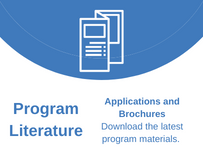Who's Eligible
NOTICE: The sustainable biopower incentive program is changing to a competitive solicitation in fiscal year 2014, with the first solicitation round open for applications through April 21, 2014.
The Renewable Energy Incentive Program (REIP) for biopower is a smart way for municipalities, wastewater treatment plants, and other New Jersey businesses to capitalize on the production of fuel from biomass energy crops and waste to reduce their carbon footprint, stabilize electric costs, preserve natural resources, protect public health, and support economic growth.
The REIP offers financial assistance for applicants interested in investing in biopower projects that convert acceptable biomass energy crops or waste into biogas or fuel that may be used by prime movers such as fuel cells, micro-turbines, spark ignition engines, and combustion turbines for generating electricity.
To qualify for a rebate, the applicant must be able to demonstrate that the acceptable biomass energy crop or waste is available on a sustainable basis and the combustion of the manufactured biogas satisfies New Jersey's regulatory emissions standards. The manufacture of the fuel can be accomplished through conversion technologies such as anaerobic digestion, gasification and pyrolysis.
REIP offers incentives for projects that generate electricity with Class 1 biomass resources. Depending on the type of feedstock the project intends to use, a biomass sustainability determination from the New Jersey Department of Environmental Protection (NJDEP) may or may not be required. Please refer to the Biopower Application Checklist and the Biomass Sustainability Determination Information Sheet for details.
Biopower systems are net metered and cannot be sized greater than the electrical consumption used by the host site in any one year.
What are the biopower eligibility requirements?
Examples of eligible facilities include:
- Digestion of Sewage Sludge
- Landfill Gas Facilities
- Combustion of wood wastes to steam turbine
- Gasification of wood wastes to reciprocating engine
- Gasification or pyrolysis of biosolid wastes to generation equipment
Examples of ineligible facilities include:
- Municipal Solid Waste Combustors or Incinerators (Class II)
- Mass Burn Incinerators
- Sludge Incineration
- Combustion of adulterated construction wood waste treated with chemicals, paints, adhesives or varnishes
Biomass Conversion & Utilization Technologies
- Combustion - convert forestry and agricultural residues and pulp and paper residues into heat and power under environmentally sound conditions
- Gasification - conversion of forestry and agricultural residues and municipal wastes into syngas, a fuel and/or chemical feedstock
- Pyrolysis - conversion of forestry and agricultural residues into bio-oils and value added products
- Anaerobic Digestion - conversion of manures, food processing residues and organic fraction of municipal wastes into methane rich biogas
Learn more about the biopower market's business and economic models.










